CUSP-GX-6004-C
2019
- Mohit Sharma
Internet of Things and Urban Sensing

©2019 Mohit, NYU CUSP
https://slides.com/mohitsharma44/urban-sensing-2019/live
https://github.com/Mohitsharma44/CUSP-GX-6004-C
Coursework
mohit sharma (mohit.sharma@nyu.edu)

| Day 1 |
|---|
|
Introduction to IoT - What is IoT - Why IoT |
| Communication Models |
|
Introduction to using Raspberry Pi as an IoT module - What is a Raspberry Pi - Using Raspberry Pi as a platform for prototyping |
|
Hands-on - Demo installing OS on Raspberry Pi - Refresher on basic Linux commands - First login and setting things up for next session |
| Go Crazy with the Pi's for the rest of the day!! |
What should you expect from this session?
mohit sharma (mohit.sharma@nyu.edu)

- Understand the idea of Internet of Things.
- Basic technical aspects involved with the Internet of Things.
- Familiar with the Raspberry Pi hardware architecture.
- Working knowledge on setting up a Raspberry Pi for IoT development.
- Able to ssh into your Raspberry Pi IoT module
Collaborate
mohit sharma (mohit.sharma@nyu.edu)

Connect to WiFi AP
mohit sharma (mohit.sharma@nyu.edu)

Connect to WiFi: iotclass-5,
(authentication: iotclass)
Do Not Stay on NYU or NYU-legacy or any other AP
Do NOT connect to iotclass
If you cannot see iotclass-5, let me know.
What is IoT
mohit sharma (mohit.sharma@nyu.edu)

- Current top Tech buzzwords
- Large corporations value its market in tens of trillions of dollars.
- There are also plans to release tens of billions of connected devices.
-
Despite this, nobody seems to agree on what Internet of Things (IoT) actually is.
The only thing people agree on is that whatever it is, it is worth a lot of money.
What is IoT
mohit sharma (mohit.sharma@nyu.edu)

- Internet of Everything
- Web of Things
- Internet of People and Things
- Machine-to-Machine
- Cyber-Physical Systems
(...)
And where there is a lot of money, there is a lot of competition, which means there is a lot of confusion!
But in order to proceed, we need to Define IoT
What is IoT
mohit sharma (mohit.sharma@nyu.edu)

Before we define IoT, let's look at why IoT?
- IoT was a term first coined by Kevin Ashton, a British technology pioneer in 1999 when most data on the Internet was entered or captured by human beings.
- Ashton coined the term to illustrate the power of using Radio-Frequency Identification (RFID) tags in order to count and track goods more efficiently and without any human intervention.
- But, if systems can access data captured by sensors directly, of course, the data will be both more abundant and more correct . This was known decades ago and is a field of study in its own right, labeled "sensor networks".
What is IoT
mohit sharma (mohit.sharma@nyu.edu)

- So IoT = Sensor networks?
IoT is not same as sensor networks since `Things` doesn't have to be sensors and similarly sensor networks doesn't HAVE to be connected to Internet. -
So IoT = Big data?
IoT is not same as Big Data because `Things` are not required to capture or generate data. -
M2M?
IoT is not part M2M because being on Internet, it is implied that humans can access these `Things` directly.
And No, IoT is also not CPS because CPS concern themselves with non-Internet protocols for transfer of messages between devices etc.
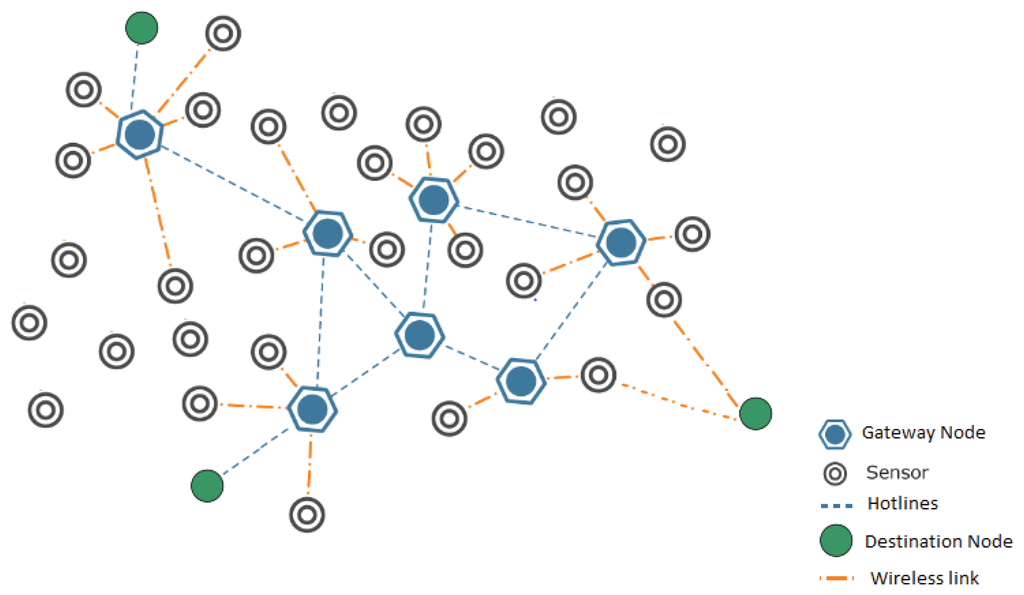
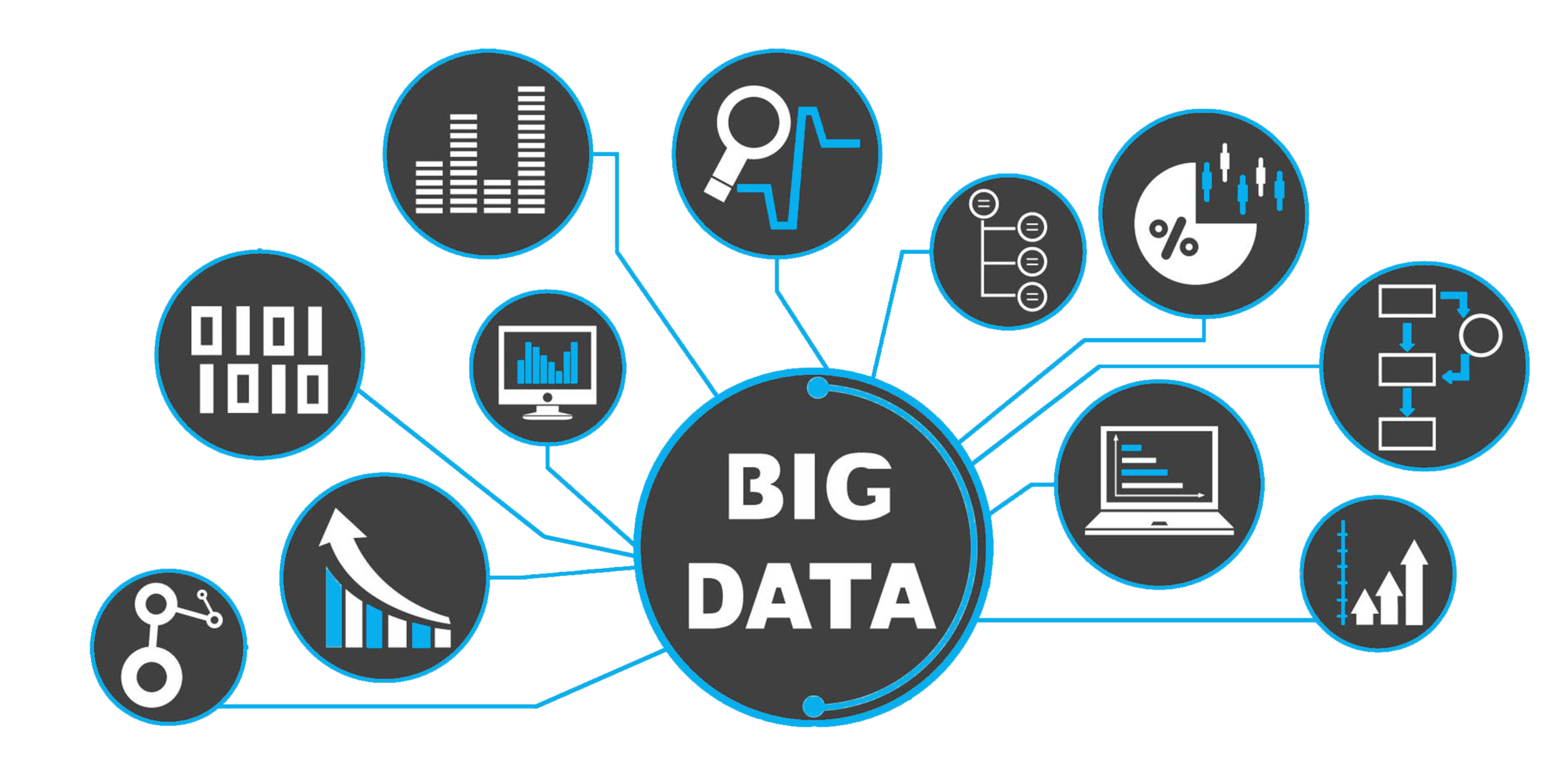
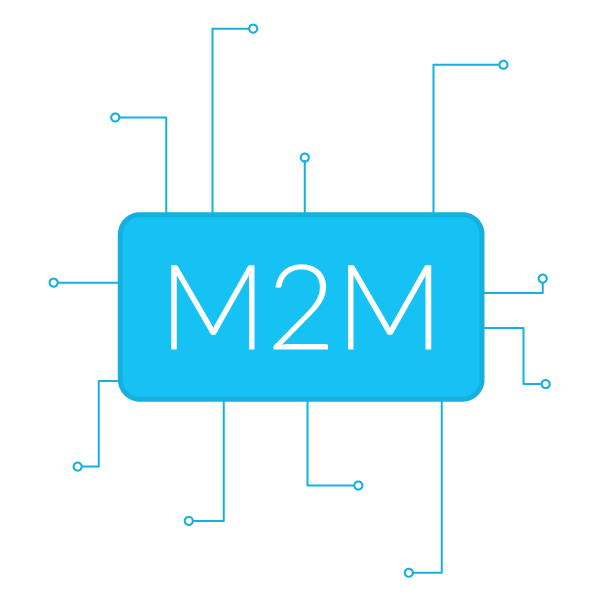
What the .... is IoT ?
mohit sharma (mohit.sharma@nyu.edu)

A very simple definition would go something like this:
The IoT is what we get when we connect `Things`, which are not operated by humans, to the Internet.
This is IoT
mohit sharma (mohit.sharma@nyu.edu)

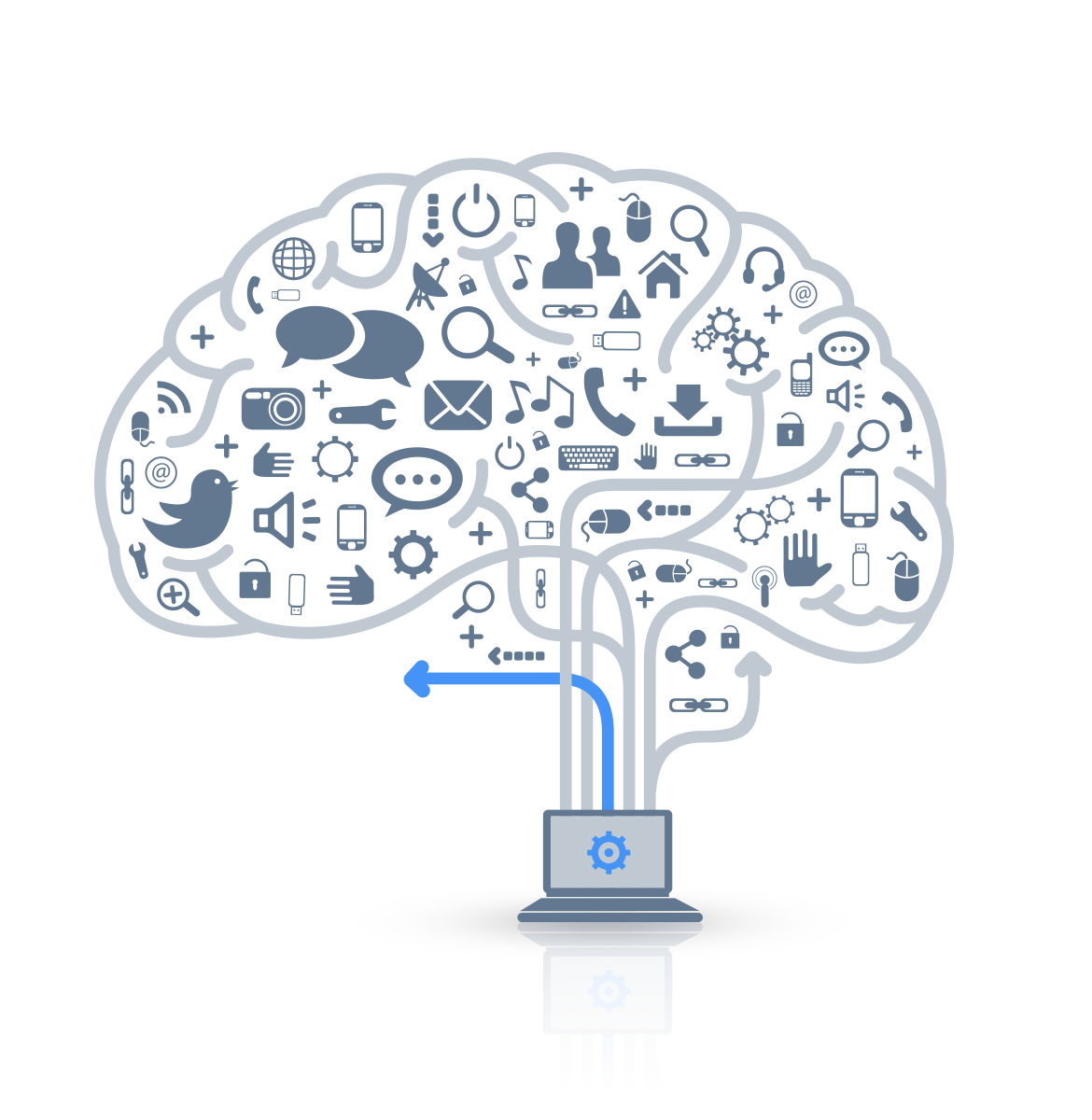
Something you can connect to..
Something that can connect to you..
Something that is connected to internet..
Something that senses..
Something that crunches and exchanges data..
Something that automates..
Something that connects to other things..
Communication Models
mohit sharma (mohit.sharma@nyu.edu)

From an operational perspective, it is useful to think technically about how the IoT devices connect and communicate. (RFC 7452)
-
Device to Device Communication
-
Device to Cloud Communication
-
Device to Gateway Model
-
Back-End Data-Sharing Model
Communication Models
mohit sharma (mohit.sharma@nyu.edu)

Device to Device (D2D) Communication
-
Devices will be the main users in the IoT ecosystem and thus D2D communication[1]
Smart Bulb
Smart Switch
Wireless Network
e.g. Bluetooth, Z-Wave, ZigBee
-
These network allows devices that adhere to a particular communication protocol to communicate.
-
Eg. Home Automation -- lights, door locks, thermostat etc.
Communication Models
mohit sharma (mohit.sharma@nyu.edu)

Device to Cloud (D2C) Communication
-
In this model, the IoT device connects directly to an Internet cloud application service provider.
Device with Sound sensor
Device with CO
sensor

HTTP, TLS, TCP, IP
CoAP, UDP, IP
Application Server
Eg. NEST, Samsung Smart TVs, etc.
CUSP's $4.2M NSF-funded project -- SONYC uses this model in production!
And so will we, in this course!
Communication Models
mohit sharma (mohit.sharma@nyu.edu)

Device to Gateway (D2G) Communication
-
In this model, the IoT device connects to an Internet cloud application service provider via Local Gateway.
Device with Sound sensor
Device with CO
sensor

HTTP, TLS,
TCP, IP
CoAP, UDP,
IP
Application Server
Local Gateway
IPv4 / IPv6
Bluetooth, WiFi, Ethernet, LR-WPAN
Communication Models
mohit sharma (mohit.sharma@nyu.edu)

Back-End Data-Sharing Model
-
Users can export and analyze the smart object data from a cloud service in combination with data from other sources.
Device with Sound sensor
Device with CO
sensor

HTTP, TLS,
TCP, IP
CoAP, UDP,
IP
Application Server 1

Application Server 2

Application Server 3
Protocol Buffers,
JSON
Communication Models
mohit sharma (mohit.sharma@nyu.edu)

What governs the selection of communication models?
-
Technical complexity -
Availability of resources -
Open versus Proprietary nature of the IoT devices -
Device interoperability -
Enabling user (adding value to the user)
Raspberry Pi
mohit sharma (mohit.sharma@nyu.edu)

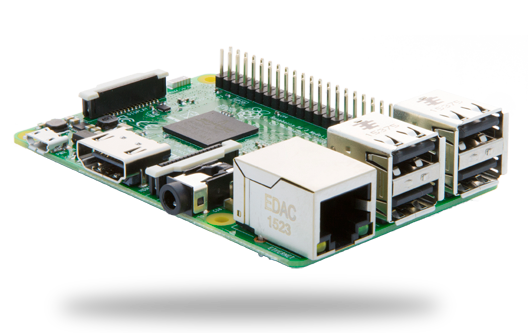

Introduction to Rpi as an IoT module
Raspberry Pi
mohit sharma (mohit.sharma@nyu.edu)


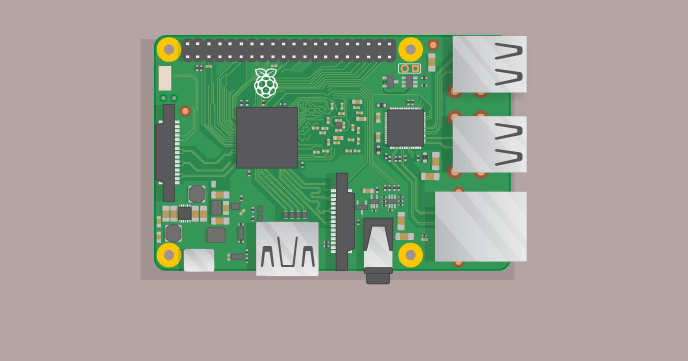
That's all it takes to start using Raspberry Pi
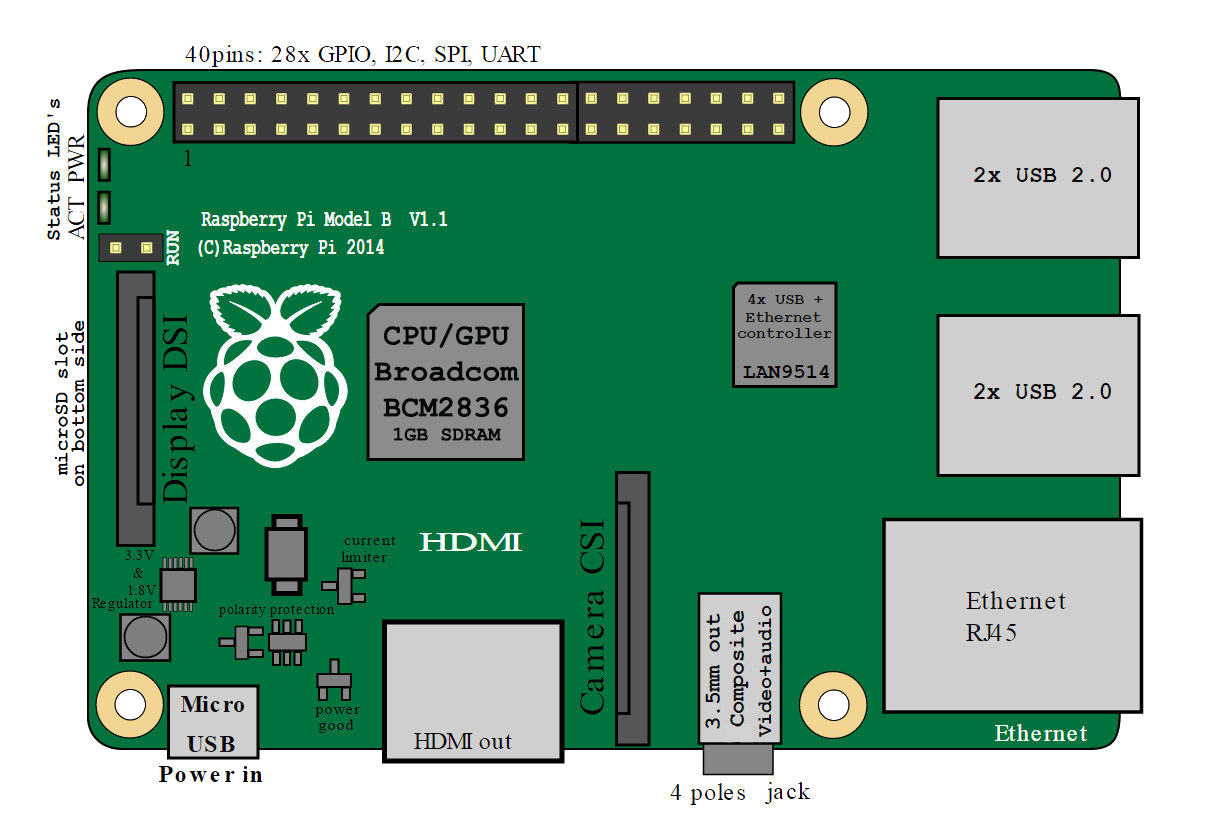
Get to know your IoT module
Total of 4 USB 2.0 ports
10/100 Mbps Eth port
28 GPIO Pins*

MicroSD card
Video
Out
5V 2A
DC_supply
Raspberry Pi
mohit sharma (mohit.sharma@nyu.edu)


Get to know your IoT module

26 "general use" GPIO pins
UART / serial communication (Pin 8, 10)Communicate with external peripheral like Arduino (I2CPin 3, 5, 27, 28)Pulse code modulation (Pin 12, 35, 38, 40)General Purpose Clock (Pin 7, 29, 31) and so on ...
You may want to check out: https://pinout.xyz
mohit sharma (mohit.sharma@nyu.edu)


image credit: http://www.flaticon.com/authors/eucalyp

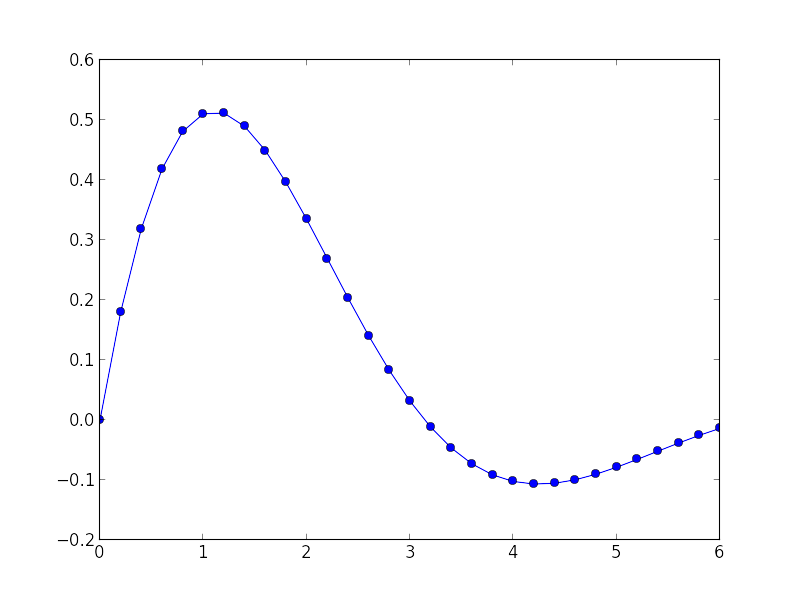
SensorX
Rpi
Data!
Not So Fast!
Get to know your IoT module
mohit sharma (mohit.sharma@nyu.edu)



SensorX
Rpi
Data!
0.46020967, 2.34629644, 0.16289884, 1.7682243 , 1.09522783
0, 1
Analog
Digital
Why?
Example
mohit sharma (mohit.sharma@nyu.edu)


SensorX
Rpi
0, 1
Analog
Digital
So?
Example
ADC
ADC
1.10, 1.66, 2.21, 2.77, 3.33, 3.89, 4.44, 5.00
mohit sharma (mohit.sharma@nyu.edu)

1.10, 1.66, 2.21, 2.77, 3.33, 3.89, 4.44, 5.00
0, 1,
10, 11,
100, 101, 110, 111
Analog
Digital
How?
ADC
Raspberry Pi
mohit sharma (mohit.sharma@nyu.edu)


Get to know your IoT module

Debian optimized for the Raspberry Pi hardware
-
Debian has a reputation within the Linux community for being very high-quality, stable and scalable. -
Extensive and friendly user community.
mohit sharma (mohit.sharma@nyu.edu)

Installing Raspbian

Default Raspbian Jessie [Lite and Desktop]
Customized Raspbian
Other OS [Ubuntu, Windows IoT Core]
mohit sharma (mohit.sharma@nyu.edu)

Default Raspbian Stretch
[Lite and Desktop]
Download the Raspbian Stretch image

Prep the micro SD card
Flash micro SD card
mohit sharma (mohit.sharma@nyu.edu)

Customized Raspbian
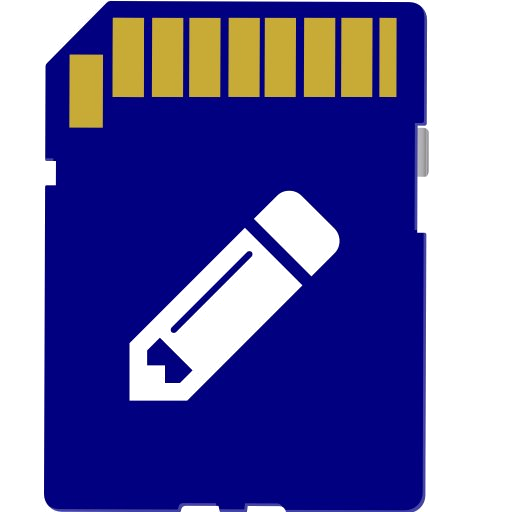
Download PiBakery
Fire up PiBakery
CUSP IoT2017
PiBakery
mohit sharma (mohit.sharma@nyu.edu)

Other OS*
Windows 10 IoT Core: https://developer.microsoft.com/en-us/windows/iot/getstarted
* I haven't tested these in-depth


mohit sharma (mohit.sharma@nyu.edu)

Our Lab!

mohit sharma (mohit.sharma@nyu.edu)

Hands On!
Connect to WiFi: iotclass-5, (authentication: iotclass5) Go to: http://192.168.1.99:8888 (note the port number) Login with your NYU net-id Download the ssh key (Make note of the IP address (this is where your Pi is waiting for you!!)
mohit sharma (mohit.sharma@nyu.edu)

What should you expect from this session?
- Learn Logging!!
- Collecting Stats from Pi
- Things involved in setting up server - client communication
- Basics of Websocket
- Real-time Visualization
- Technologies for client server communication.
- Sending some sensing data to the server
mohit sharma (mohit.sharma@nyu.edu)

Connect to WiFi AP
Connect to WiFi: iotclass-5,
(authentication: iotclass)
Do Not Stay on NYU or NYU-legacy or any other AP
Do NOT connect to iotclass
If you cannot see iotclass-5, let me know*.
* well, I really dont have spare laptops, so just peep into your neighbors
mohit sharma (mohit.sharma@nyu.edu)

Keep Updating the shared Document
mohit sharma (mohit.sharma@nyu.edu)

Uh - Oh!
(Check): sudo dpkg -L wireless-tools (If not installed): sudo apt-get install wireless-tools (Install): sudo apt-get update (Install): sudo apt-get install curl python-pycurl (Install): sudo pip install psutils
mohit sharma (mohit.sharma@nyu.edu)

Feedback
Live Poll (will end by tonight)
Link: http://etc.ch/2w8c
mohit sharma (mohit.sharma@nyu.edu)
